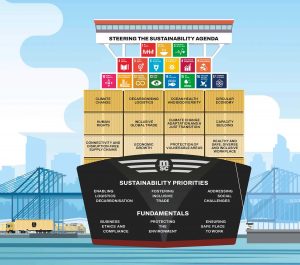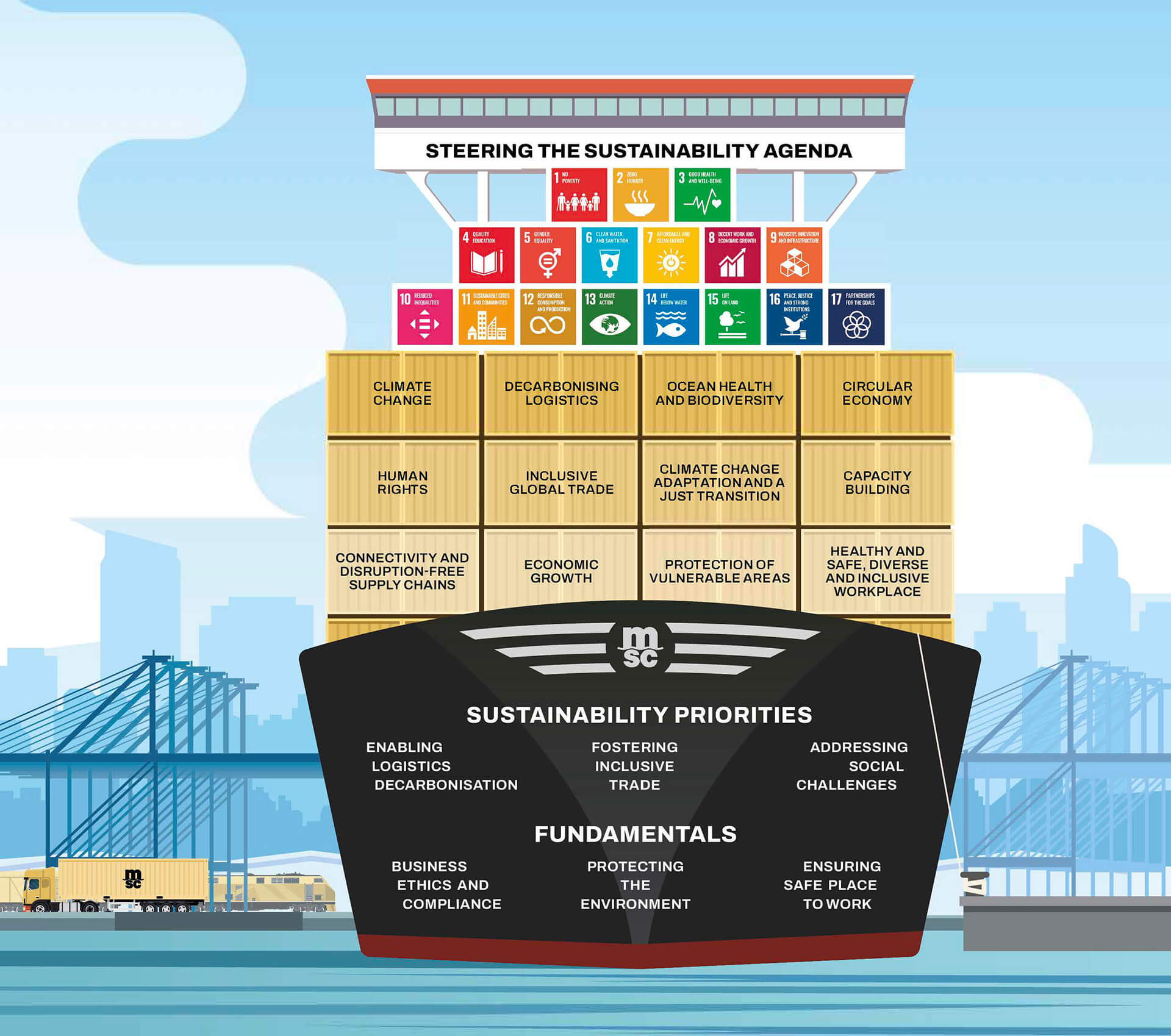Shipping companies play a crucial role in global trade, but their operations can also have significant environmental impacts. As a result, many shipping companies have developed policy statements outlining their commitment to environmental responsibility and sustainable practices. These policy statements generally address various aspects of maritime operations, including emissions reduction, waste management, and resource conservation. Below, we will discuss the key components of an environmentally-focused policy statement for shipping companies.
- Introduction: In this section, shipping companies generally acknowledge the importance of environmental responsibility and express their commitment to reducing their ecological footprint. They may also recognize the potential environmental risks associated with their operations, such as air and water pollution, and highlight the need to mitigate these risks.
- : The policy statement should specify which vessels, operations, and geographic areas the policy covers. This might include the company’s entire fleet or focus on specific vessel types or regions. The statement should also clarify the roles and responsibilities of various stakeholders, including employees, subcontractors, and suppliers, in implementing the policy.
- Emissions Reduction: Emission reduction is a critical aspect of environmental policy statements in the shipping industry. Companies may commit to reducing greenhouse gas (GHG) emissions, air pollutants, and underwater noise levels. This can be achieved through various strategies, such as:
- Implementing energy-efficient technologies and operational practices, such as slow steaming, hull cleaning, and propeller polishing.
- Adopting alternative fuels, like liquefied natural gas (LNG), biofuels, or hydrogen, or exploring electrification options for vessels.
- Investing in innovative vessel designs and technologies to improve fuel efficiency and reduce emissions.
- Waste Management and Pollution Prevention: Shipping companies should outline their strategies for waste management and pollution prevention. This may include:
- Implementing a comprehensive waste management plan to minimize waste generation and ensure proper disposal.
- Ensuring the responsible handling and disposal of hazardous materials, such as oily waste, chemicals, and bilge water.
- Preventing the discharge of ballast water containing invasive species by adhering to international guidelines and utilizing ballast water treatment systems.
- Implementing best practices to reduce the risk of oil spills and develop emergency response plans for spill incidents.
- Resource Conservation: Shipping companies may also commit to conserving resources and promoting sustainable practices. This can involve:
- Promoting water and energy conservation on board vessels and at company facilities.
- Implementing sustainable procurement policies to source environmentally-friendly products and materials.
- Encouraging the use of reusable or recyclable materials and minimizing single-use items.
- Compliance and Monitoring: Shipping companies should commit to complying with all applicable international, national, and local environmental regulations. They may also establish monitoring and reporting mechanisms to track their progress in implementing the policy and achieving environmental goals. Regular audits and reviews can help ensure continuous improvement and adaptation to new regulations or emerging environmental concerns.
- Training and Awareness: To successfully implement an environmental policy, companies need to invest in training and raising awareness among employees and other stakeholders. This may include:
- Providing training on environmental best practices, waste management, pollution prevention, and resource conservation.
- Encouraging a culture of environmental responsibility and empowering employees to identify and report potential environmental risks or areas for improvement.
- Stakeholder Engagement and Collaboration: Shipping companies should recognize the importance of engaging with stakeholders, including regulators, industry partners, customers, and local communities. They can foster collaboration by sharing best practices, participating in industry initiatives, and supporting research and development efforts to advance sustainable maritime technologies and solutions.
By developing and implementing a comprehensive environmental policy statement, shipping companies can demonstrate their commitment to environmental responsibility and contribute to the global effort to protect our oceans and the planet.

Below are links to environmental policy statements and sustainability reports of some major shipping companies, which address their commitment to environmental responsibility and sustainable practices:
- MSC (Mediterranean Shipping Company): SUSTAINABILITY REPORT – MSC
- Hapag-Lloyd: Sustainability Strategy
- CMA CGM: Our Sustainability approach
- Evergreen Line: Environmental Policy & Commitment
These documents and reports encompass various aspects of maritime operations, including emissions reduction, waste management, and resource conservation, as outlined in your description.
Prepared by Dr.Reza Karimpour

